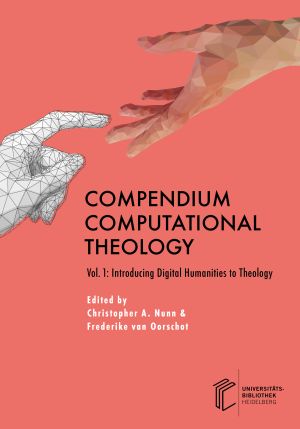Zitationsvorschlag
Lizenz (Kapitel)

Dieses Werk steht unter der Lizenz Creative Commons Namensnennung - Weitergabe unter gleichen Bedingungen 4.0 International.
Veröffentlicht
Doing Theology “with” Videogames – Insights for Computational Theology
Abstract This chapter explores the intersections of Computational Humanities, Digital Theology, and videogames, asserting that a definition of Computational Theology must clarify how its assorted methods, both digital and computational, inform knowledge-making, and avoid separating users from computers, something the field of Human Computer Interaction (HCI) has been instrumental in establishing (especially when it comes to disabled users). Drawing on a mixed-methods pilot study, in which disabled users helped to design and play a videogame to enrich Protestant Christian faith experiences in the Northeastern United States, the author provides three guiding insights for doing Computational Theology with videogames:
(1) Computational theologians wishing to engage videogames must center users in prototype development and methods for study;
(2) Computational theologians must appreciate play as a site of theological knowledge-making, moving from observing structural symmetry between religion and games to doing theology with games and gamers themselves;
(3) Even when games are created with specific users in mind, computational theologians must not mistake games for neutral objects; rather, they must continually interrogate the theological underpinnings of computational models.
Keywords Computational Theology, Digital Theology, Game Studies, Human Computer Interaction



